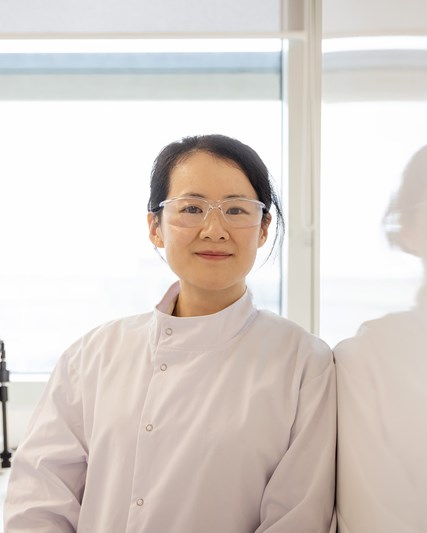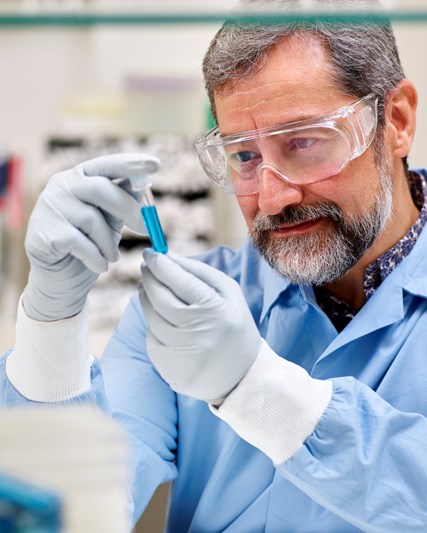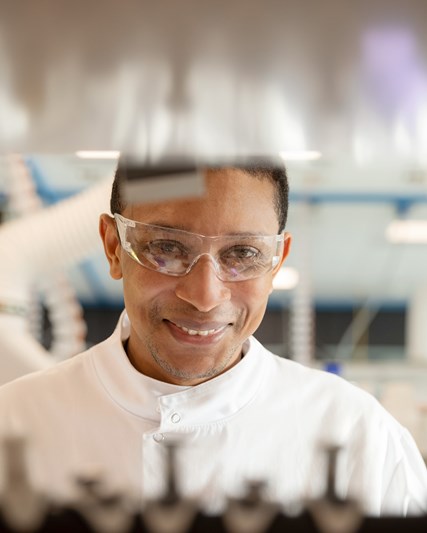Infectious diseases (IDs) such as malaria, tuberculosis (TB) and enteric diseases are among the leading causes of death globally, killing almost 9 million people each year. These diseases, which are often preventable and treatable, disproportionately affect sub-Sahara African (SSA) populations, and when left untreated, result in poor health outcomes and morbidity, higher mortality in coinfections with other infectious diseases, stigma-related mental disorders, and exacerbated social and health inequalities. Research is critical for the development and implementation of effective measures to meet the global health challenges of eliminating IDs.
Having previously funded 20 projects through the Africa NCD Open Lab until our last call for proposals in 2022, we are now calling for research proposals focused on funding high-quality infectious disease research that has the potential to deliver significant health impact and develop future research leaders, with up to £100,000 available per award. Along with the award we offer mentoring, scientific and technical support while you conduct your innovative research project.
Applications for 2024 are now closed.


- Up to £100,000 available per award to cover a project for up to 36 months.
- The award will offer funding to cover the costs of an appropriate research project including costs for equipment, field work and data collection, consumables, and research assistance.
- There will be opportunities to undertake training activities relevant to achieving the aims of the project or research career development, including short courses and training visits to relevant research institutions, to be agreed in consultation with GSK.
- In addition to financial support, GSK will provide scientific support throughout the duration of the award term. The level of interaction will be determined through the application process and will be tailored to the individual needs of the project. GSK will explore links with scientists from academic and research groups in Africa and globally to provide mentorship to successful applicants.
- Funding is not provided for degree/fellowship tuition fees.

The applicant - you must meet all of the following criteria
- The principal investigator must be an African scientist in the early stages of their research and academic career, defined as: a basic biomedical scientist, clinically qualified investigator, or public health researcher, who has not previously competed successfully as principal investigator for a major research grant (>£100,000), and who is no more than five years from their highest postgraduate qualification (career breaks and time out of academic research will be taken into consideration).
- The minimum formal qualification required is a graduate degree. Most applicants will be expected to have a MSc, PhD or an MD. Applicants can hold a lecturer appointment, a junior fellowship, or be in another research staff position.
- Must demonstrate a track record and ongoing commitment to health-related research and the skills and experience required to carry out the proposed work. Evidence of research output, including publications in peer reviewed journals, conference publications, presentations at scientific conferences, input into clinical guidelines or policy documents is required.
- Employed by a research or academic institution in SSA. Additionally, applications are strongly encouraged from historically underrepresented population groups and institutions.
- A national of a sub-Saharan African country and based in an institution in SSA.
The research project – your project must meet the following criteria
- Research proposal of relevance to disease understanding in the following disease areas:
- Malaria
- Tuberculosis
- Antimicrobial resistance (AMR) linked to these infectious diseases
- Enteric infections
- Other (Neglected Tropical Disease and emerging infectious diseases of particular relevance for Africa)
- Research must address one or more of:
- Infectious disease epidemiology
- pathophysiology
- aetiology
- prevention and treatment of primary disease
- the significant gaps in knowledge about the diversity and causes of disease
- disease presentation and variations in clinical features
- responses to medicines and vaccines
- the emergence of antimicrobial resistance linked to these infectious diseases, antibiotic stewardship
- mechanisms for improving access to and optimising use of medicines and vaccines in SSA
- Will generate significant data to strengthen further funding proposals that could lead to additional grant funding from other organisations and/or research collaborations in the longer term.
- Proposals must demonstrate the specific health needs their research will address and how they will engage with specific stakeholders to bring about change in health policy and practice. Projects focused on drug or vaccine discovery or those using animal models will not be considered.

Applications for research grants will be subject to a 2-stage review process. Only those successful at the concept stage will be invited to submit a full application. Recommendations for award funding will be made based on scientific merit.
- How to apply:
- Please go to the GSK Supported Studies website. You will need to register to access the preliminary concept application form.
- Complete the preliminary concept application form and submit it along with your CV (Please use the CV Template provided in the application form).
- Read the full ‘Conditions for Applicants’ before submitting your application.
- The selection process:
- Completed proposals will be assessed by a scientific panel, including the scientific advisory board of African infectious disease experts and academics from other institutions.
- Those assessed as competitive will be invited to submit a full application.
- Please note that we will not provide written feedback for unsuccessful applications at the preliminary application stage.
- Reviewers will typically assess:
- The eligibility of the applicant
- The scientific merit of the proposed project
- The significance and potential impact of the research
- The potential for scaling up the research
- The potential impact of the project on your career development.
Contact details
For IT and program related queries please contact the Supported Studies team: supported.studies@gsk.com



